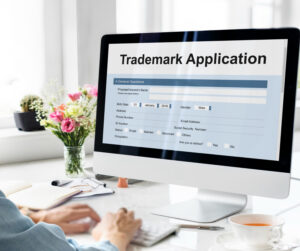INTELLECUTAL PROPERTY CASES
This page discusses the Intellectual Property Cases and Lawsuits arising from the disputes relating violation or infringement of registered as well as unregistered Intellectual Property Rights. There are majorly three kinds of Registrations, viz. Copyright, Trademark and Patents. This paper covers laws relating to Copyright and Trademark Registration and Disputes in India.
 COPYRIGHT DISPUTES
COPYRIGHT DISPUTES
Copyright means that the right to copy an original work is with the author or owner of the work. In case, an original work is copied without the authority or assignment by the owner or author of the work, then the same is held to be an infringement of copyright of the author or the owner.
Although, a copyright exists with the author from the date of its publication till 60 years from the date of death of the author, however, it is advised to get the copyright in a work registered with the Registrar of Copyrights.
Copyright exists in the following works:
- Literary
- Dramatic
- Musical
- Artistic
- Cinematograph/Video Films
- Sound Recording
Benefits of the Registration of Copyright:
- By registering the copyright work, an author or owner of the work protects himself and the work from getting copied.
- Grant licence to a third person for copying or using the work for profit and getting royalty/licence fee from the work.
- In case of an infringement of the copyright, the owner or author of the work need not establish that he is owner or author of the work which has been copied in the suit before the civil court. He/she can directly file a Civil Suit for,
- Injunction from further unauthorised publication of the work, and
- Recovery of Damages caused due to such unauthorised copying of the original work.
Section 45 of the Copyright Act provides that an author or owner of a work may make an application in the prescribed form accompanied by prescribed fee to the Registrar of Copyrights for registration of the work and entering the particulars of the work in the Register of Copyrights maintained at the Copyright Office.
 TRADEMARK DISPUTES
TRADEMARK DISPUTES
Trade Mark means a mark capable of being represented graphically and by which a person can distinguish the goods or services of one person from those of others and may include shape of goods, their packaging and combination of colours.
In order to get a Trade Mark in force / legally recognised, one has to get the Trade Mark registered under the Trade Marks Act 1999.
A Trade Mark registration is valid for a period of 10 years but may be renewed from time to time.
Benefits of Registration of Trade Mark:
- It gives exclusive right to the Registered Proprietor / Owner of the Trade Mark the exclusive right to the use of such Trade Mark in relation to the goods or services in respect of which the Trade Mark is registered.
- It helps the Registered Proprietor to obtain relief in respect of infringement of the Trade Mark.
- No person whose Trade Mark is not registered can institute any proceeding to prevent or to recover damages for the infringement or violation of his/her unregistered Trade Mark.
- Assing the Trade Mark to a third person for using the Trade Mark for profit and getting royalty/licence fee from such usage.
- In case of an infringement of the Trade Mark, the Proprietor need not establish that the Trade Mark is valid. Registration itself gives validity to the Trade Mark in the suit before the civil court. He/she can directly file a Civil Suit for,
-
-
- Injunction from further infringement and unauthorised usage of Trade Mark, and
- Recovery of Damages caused due to such infringement.
-
Section 18 of the Trade Marks Act provides that any person claiming to be the proprietor of Trade Mark used or proposed to be used by him may make an application in the prescribed form accompanied by prescribed fee to the Registrar of Trade Marks for registration of the same.